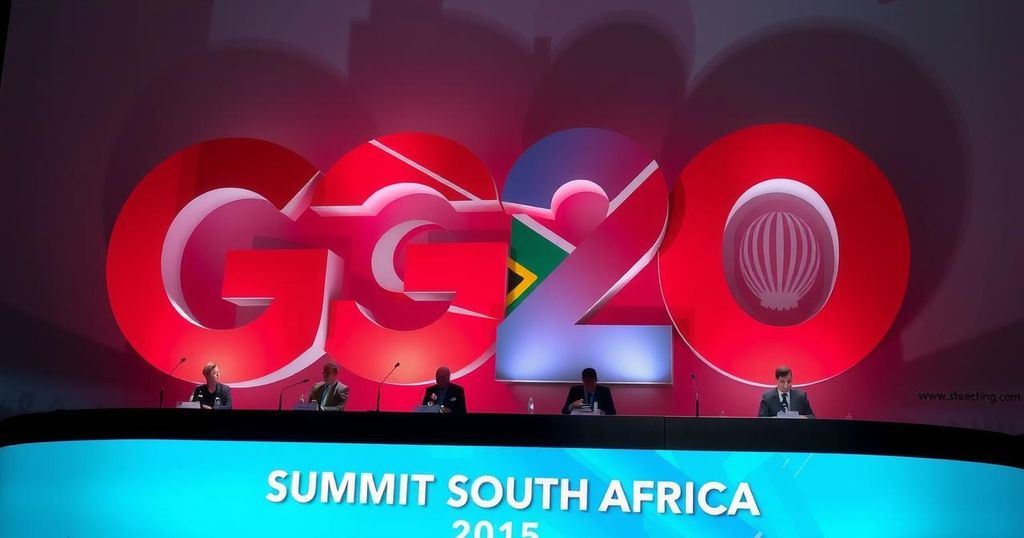South Africa’s G20 Presidency: Cyril Ramaphosa’s Vision for Global Cooperation

South Africa, under the leadership of President Cyril Ramaphosa, has assumed the G20 presidency. His agenda prioritizes climate change, debt relief, and economic transformation, utilizing Africa’s mineral resources. The presidency is pivotal amid US-China tensions and rising global protectionism, requiring Ramaphosa’s consensus-building skills for effective leadership.
South Africa has taken a historic step by assuming the presidency of the G20, becoming the first African nation to lead this prestigious group. President Cyril Ramaphosa has articulated an ambitious agenda aimed at addressing pressing global issues, including climate change, debt relief, and economic transformation. He emphasized the importance of utilizing Africa’s rich mineral resources, such as cobalt sourced from the Democratic Republic of the Congo, to foster growth and development across the continent.
In his approach, President Ramaphosa also aims to navigate the complex landscape of competing global interests while alleviating the divisions caused by ongoing geopolitical conflicts, notably the war in Ukraine. Analysts underscore that Ramaphosa’s longstanding dedication to consensus-building—evident during the drafting of South Africa’s 1996 constitution and its recent hosting of the 2023 BRICS summit—will be crucial for effective leadership of the G20. Moreover, his diplomatic skills will be tested against the backdrop of increasing US-China tensions, rising protectionism, and Africa’s demand for equitable policy frameworks.
The G20 is a forum for international cooperation that encompasses major economies, representing around 85% of global GDP. South Africa’s presidency is significant as it highlights African leadership on global issues. Ramaphosa’s agenda reflects not only South Africa’s national interests but also the broader objectives of the African continent, particularly in tackling economic disparities and environmental challenges. The geopolitical landscape is increasingly complex, with rising tensions between the US and China and the ramifications of protectionist measures, which further complicate global collaboration.
In conclusion, South Africa’s presidency of the G20 under President Cyril Ramaphosa presents a pivotal opportunity to address significant global challenges, including climate change and economic equity. His focus on leveraging Africa’s mineral wealth and fostering consensus reflects a proactive stance in promoting collaboration among nations. However, the successful execution of his agenda will require adept navigation of geopolitical conflicts and persistent efforts towards equitable policies.
Original Source: iafrica.com








